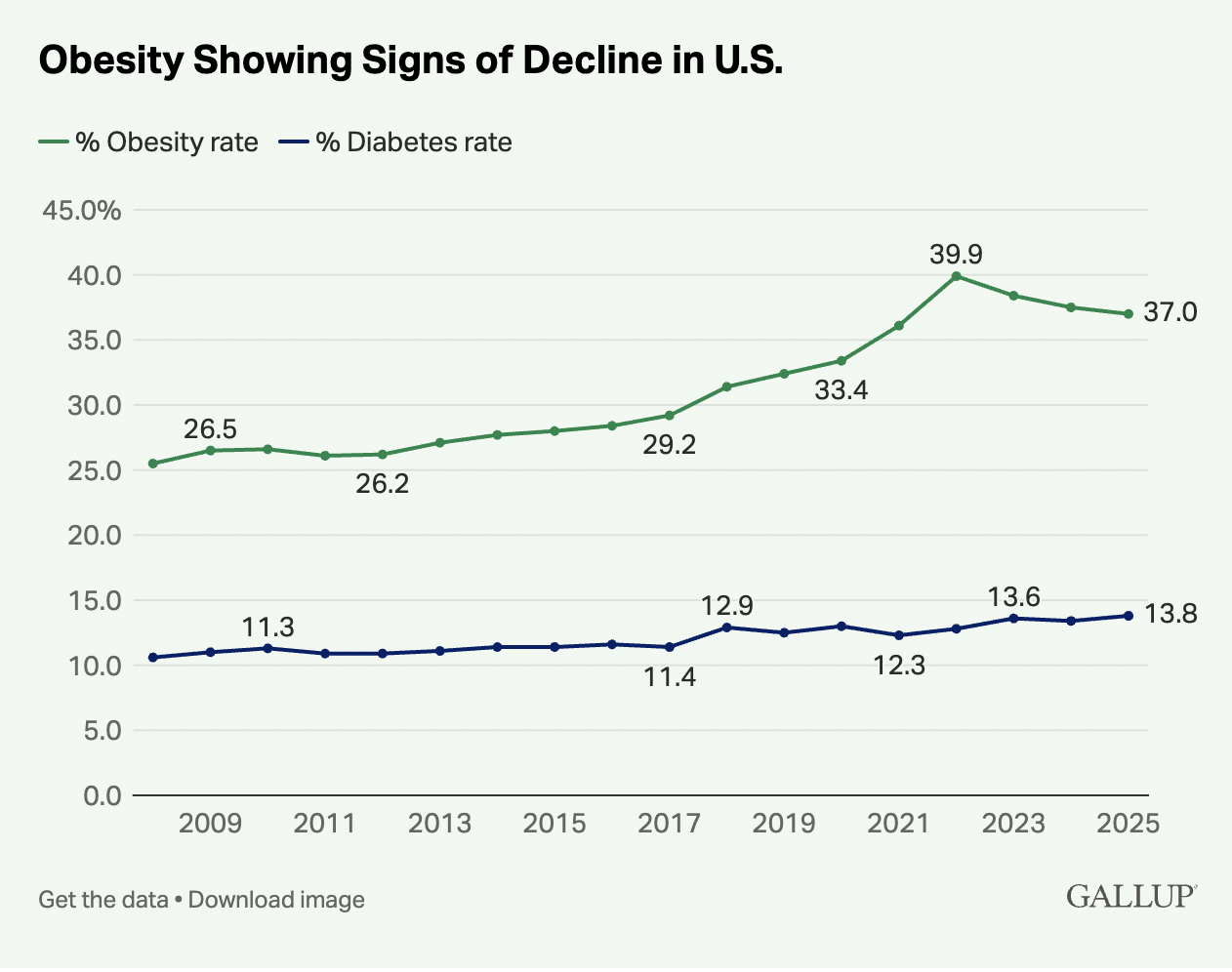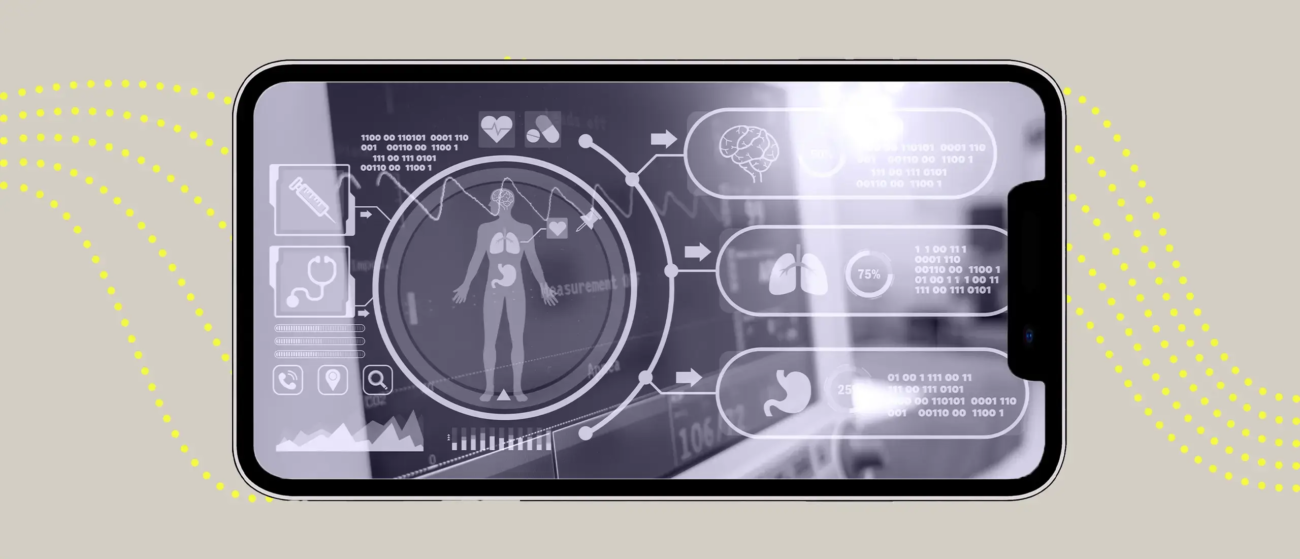If you’ve noticed that the talk of health, wellness, longevity seems to be everywhere these days, you’re not the only one. Over the last decade, there has been an explosion of articles, podcasts, products, apps, devices, and more that promise to make us healthier. This is not be accident. In a recent report by BrandWatch, titled “The Generational Trends Report“, they analyzed millions of social media conversations to understand the preferences of different generations when it comes to categories like food, travel, shopping, etc. They looked at four generations: Gen Z, millennials, Gen X, and baby boomers. Across all generations, the most important and mentioned areas of interest were health- and wellness-related.
Gen Zers are prioritizing wellness: from drinking more water to building new (healthier) routines, they are focused on habits that make them feel better, inside and out. It’s not a surprise that this generation is more vocal about mental health and how they’ve had to deal with such issues during and after the pandemic. Also, these discussions include mentions of diet and fasting. Intermittent fasting has been a rising trend across the population and given the rise of obesity in younger people, it’s not surprising to see these mentions.
Millennials are catching on to what energy drinks are: drinks full of caffeine and sugar, intended to provide short-term energy boost with serious long-term consequences such as (pre)diabetes, anxiety, sugar crashes, burnout, and more. This is in light of the fact that many of these brands have been clever in their marketing to this group such that they project fun, vitality, coolness, and more in their marketing. This means that the energy drink push of the last couple of decades may be losing steam as more people of all generations are prioritizing long-term health over a short-term energy boost. For Gen Xers, lifestyle transformation, including weight loss seems to be a top priority. Compared to previous studies, they focused more on habits like overeating, excessive sugar consumption, or alcohol use and weaning themselves off of them. They also had high mentions of detoxing, another indication of an increasing interest in health and wellness as a top priority in their lives.
As for baby boomers, they are also increasingly focused on health and wellness with food quality and safety as a top concern. Their concerns are around food additives, chemicals, and unhealthy ingredients. Issues around transparency in labeling, environmental impact, and animal welfare are front of mind for this generation. Many are increasingly advocating for plant-based diets as a way to improve health but also as a way to combat climate change.
What all of this adds up to is a society increasingly concerned about their short- and long-term health and wellness across different generations. This is translating into deliberate choices in how they live, what they eat and buy, and how they relate to the world. How this trend started is hard to say but one has to look at the PC revolution, the internet, social media, smart phones, wearables, etc as key drivers. My sense is that the increasing availability of information and channels with which people can engage with different communities has meant that information about topics like health are discussed far more often than before. Something that used to be a niche conversation topic for a segment of the population often referred to as “health enthusiasts” is now a topic of interest all over the internet and social media networks. Why not? Who doesn’t want to feel better, live longer, be able to be more active, and more? I think the internal desire to be healthier meet ubiquitous advice online has created this movement.
No matter the cause, there could be very positive consequences coming out of this. While the rapid rise of obesity, pre-diabetes, diabetes, and all of the complications that come from these conditions has been a trend over the last 30 years, there are reasons for optimism. Recent data suggest that obesity rates in the United States may finally be falling. After peaking around 40% in 2022, the most recent estimates from 2025 place obesity rates at about 37%, a 3% drop over the last 3 years. While the increasing use of GLP-1s may be one of the drivers (it is estimated that 8% of the US population is taking GLP-1s in 2025,) there’s evidence to suggest that the larger push for eating healthier and becoming more active is also contributing to this progress. While losing weight is a priority for many people for reasons beyond just health and will lead to major health benefits, losing weight at any cost could have detrimental consequences also. If you’re consuming a low carb, high protein diet, chances are that you’re eating high amount of animal fat in meats. This is one of the hallmarks of such diets (e.g., Keto diet) and can lead to inflammation, cancer, cardiovascular disease, and more. So, being thin at any cost is by no means is a good idea.

As you can see, all of the information and advice available online and on social media is not translating into better outcomes. In fact, there’s definitely a troubling trend of products and services being marketed with little evidence supporting them. This includes large categories like supplements, advanced testing, personalized diets based on advanced testing, devices that make claims to improve sleep, activity level, mental health, and more. Don’t mention the low evidence level to the people who are spending money in these categories. As I’ve written in past articles, once you invest in a health product, there’s evidence that people become emotionally attached to the idea that they’re doing something for their own health. This almost becomes a proxy or better put, a replacement, for the hard work of eating healthy and exercising on a regular basis. As such, people often become resistant to feedback about the fact that the claim that wearing a head gear has not actually been show to improve sleep. Same with supplements, protein-based diets, diets based on genetic and microbiome testing and more.
So, are we making progress with personalized health? Well, we’re doing more research with more products and services. Those that are actually doing research are early in their journey. But, the reality is that most health products are not investing in the type of research that will convince the medical community that they actually yield results. In those instances, clever marketing is how they plan to make a buck. For the time being, caloric restriction, eating vegetables, fruits, nuts, avoiding salt, sugar, saturated fat, exercising, stress management, deep relationships, and high quality sleep are personalized approaches that will work for everyone. Whether we come up with more nuanced recommendations for population segments and individuals remains work-in-progress.





